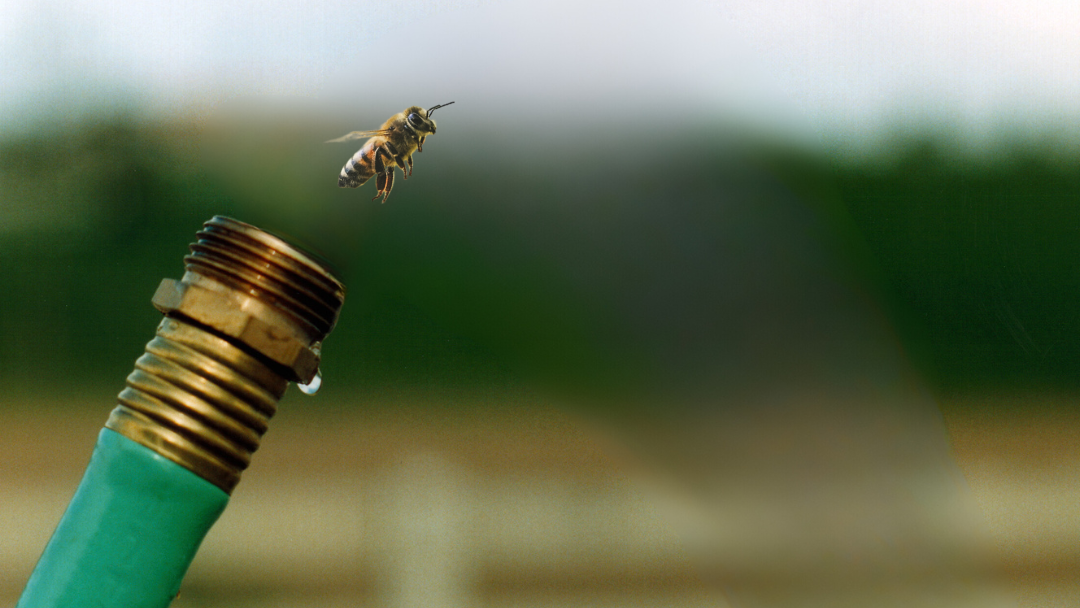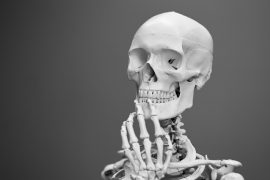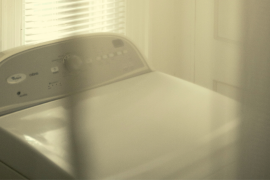It started with bees in the garden hose. Allison had gone to the back of the house and turned on the faucet, needing to finally water the yellowed grass, wanting to make sure it still worked since she hadn’t touched it in years. That had been Fletcher’s job, keeping up the lawn, knowing if the faucet worked.
Water trickled out but so did pollen, a clump of it falling like powdered butter. Allison jumped back, looked down at the hose she’d planned to connect to that faucet, and watched a bee fly right into the nozzle. Such a small, thin bee, what she and her childhood neighbor Rose would have called a sweat bee back when they spent hours in the field behind their houses. Another bee flew into the hose.
When Erik leaned his skinny little-boy body out the sliding glass door to see what his mother was doing in the backyard, a place she never went, Allison shrieked.
“Stand back! Go inside!” She waved her hands at him as if waving off a bee.
Erik just looked at her. “What.” It wasn’t a question. His mother was acting insane.
“Erik, go! It’s bees! They built their nest in the faucet.” She kept waving at him, willing him away. “They’re inside the hose.” The trickling water had made its way to Allison’s sandaled feet. She stepped back instead of forward, instead of turning off the faucet.
“Bees live in hives, not nests.” Her son was adamant on this point. “Not in hoses.” Erik was eight, and he knew plenty of things about insects and animals. His mother was old and confused.
Next it was the beetles on the front porch, clambering up from the deep crack that Fletcher had always planned to get repaired. It was at dusk, streetlights dim, a rhythmic chirping in the grass, a soothing murmur, and Allison was smoking her last cigarette. It wasn’t her last by choice. The box was empty now and she couldn’t bear to go all the way to the drugstore to buy more. She preferred to stay home whenever possible. She looked down as she flicked a bit of ash and saw them, the scurrying, black bodies, shining in the soft light. Allison almost screamed but held it in, stomped on her last cigarette, hop-stepped over the crack and the line of beetles who had taken over her porch, and ran inside to find a can of bug spray. There was only weed killer, so she leaned out the half-open door and squirted it all over the beetles’ backs, kept squirting until her fingers cramped. She closed the door and tried not to panic. Usually she’d encounter one bug at a time, write it off as an anomaly, certainly not her fault. But more than one bug, a horde of bugs, that brought up words like dirty and problematic and infestation. She scrubbed her hands with lavender-vanilla soap at the kitchen sink until she couldn’t smell the tinny weedkiller on her fingers anymore, couldn’t taste the metallic sting on her tongue.
The next morning she asked Erik if he’d sweep up the beetle carcasses, dump them in the outdoor bin. She thought maybe their curled bodies would fascinate him, with his constant reading about bugs and wildlife.
He opened the door, looked out on the porch, and made a loud gagging sound. “That’s gross, Mom.” He looked at her like she grew them there on purpose, planted beetle seeds just to let them form a strong porch-based community before killing them. His sigh was heavy and disgusted as he went upstairs.
She leaned back against the closed door, the broom in one hand and the dustpan in the other, trying to slow her breathing, wishing for one more cigarette. Maybe she’d left one at the bottom of her purse.
When a bird built its nest in the barbecue pit, and then cooked itself under the metal lid in the angry heat of a Midwestern summer, Allison thought she was losing her mind. She slammed the lid back down after catching a glimpse of its brittle remains on the grill. This was too much to ask, for her to somehow remove it and dispose of it. She couldn’t. She called the local waste removal company and scheduled a bulk trash pickup, then wheeled the whole thing out to the curb, lid closed.
Clearly the birds knew exactly what she’d done and sought revenge. A small brown bird built a nest in the wreath on the front door, making it unusable until the baby birds were hatched and then gone, forcing her and Erik to use the sliding glass door, to avoid the hose, and walk around to the driveway from the backyard.
Then another bird built a nest in the newspaper cylinder below the mailbox at the front of their yard. One too-bright summer afternoon when Allison opened the mailbox, the bird flew straight out, startling her enough that her ankle turned as she lurched back, landing her on the ground, braced by her hands. Her palms were rubbed raw from the loose gravel bits in the street. Strawberries, she and Rose would call them, those speckled pink splotches, when they’d scrape up their knees falling from railroad ties, playing tightrope walker, imagining themselves running off to the circus together.
Allison sat at the kitchen table with cotton balls and peroxide, dabbing her stinging red palms. Erik was on his stomach in the next room, feet swinging in the air behind him, watching a superhero and a supervillian battle noisily on television. How can a body be so little and so big, she thought. When he was a baby, Allison remembered needing breaks from him, passing him off to Fletcher as soon as he walked in the door, that act a motherhood cliche for a reason. She needed to have her arms again, for her hands to do something besides hold the baby and feed the baby and change the baby’s diaper. But seeing Erik squint at the screen now, his mouth curled up, surely envisioning himself as an integral part of the super-battle, she thought maybe she’d give just about anything to pull him up into her arms, to have him as her baby again, his eyes locked onto hers as he sucked on the bottle she held for him, his impossibly soft hands in fists by his ears.
Erik must have felt his mom stare too long because he turned to look over at her. She didn’t usually sit at the kitchen table. Each night after she made sure Erik was fed and settled up in his room, she’d eat dinner in her chair, reading a book, her fingers touching her bottom lip when a cigarette craving hit.
“Mom! What are you even doing.” Erik climbed to his feet, trying to see what was going on with her hands.
“I fell outside. It’s okay, it doesn’t really hurt.” Allison watched her little-big son as he walked toward her.
“What the heck happened.” Erik rubbed across his nose with the back of his hand.
Allison told him about the bird that flew out from under the mailbox, how it startled her, how she fell. She watched him watch her, and felt like something opened wide in her chest as he listened to her, nodding. She told him then about the bird in the barbecue pit, which she hadn’t told anyone about, certainly not the waste removal company. He sat down at the table, quiet, looked at her red-splotched palms.
“Does it burn?” he asked, pointing at the peroxide.
“No. I’m fine. It’s just to clean it,” Allison said.
It bewitched her, having Erik so near, really listening to what she said, something she couldn’t remember her son doing since Fletcher had left her. Had left them.
And so she found herself telling him about Rose. How Rose would’ve said she had strawberries on her palms. The way they played in the back field all summer long, the sunlight low and heavy on the sharp blades of grass. The praying mantis they found on a twig, so still, so regal. How they’d stay out until the streetlights came on, a cloud of swirling moths in their blurry glow. The way lightning bugs blinked around the girls as they walked slowly back to their own porches.
Rose called her Allie, a name no one else called her, not before and not after Rose moved away from the neighborhood. During that longest summer they must have been 9, maybe 10. Not much older than Erik. The girls thought—they knew—they had the world figured out. They understood everything.
Erik didn’t say a word through all of that, just listened. When his mom stopped talking and put the lid back on the peroxide bottle, he stood up.
“I have an idea,” he said, then ran upstairs to his room.
Allison stayed in that moment for a bit longer, sitting at the table, running it all back through her mind, feeling the weight of her son’s attention on her as she’d talked and talked.
Erik ran down the stairs and out the front door.
She watched him slam the door, grateful the nest was no longer in the wreath, then went to the window. Erik was in front of the mailbox, bending forward, doing something with the cylinder beneath it. She worried that the bird had gone back inside, that it would fly out at Erik, maybe right into his face. She wanted to run outside and stop him, tell him to move away, to be safe.
Then he stepped back, observing his handiwork, smiling. As he walked up the driveway, Allison moved away from the window. She sat down on the low bench, which she called a windowseat because she’d always wanted one, even though it was just a bench in front of a window.
Erik came inside, slammed the door behind him, then looked at his mom, his chest lifted with pride. “I did it.”
“What did you do?” Allison had a moment of panic. Did he hurt the bird, like how she killed the beetles? Had she taught him all the wrong things?
“I blocked up the tube,” he said. “Under the mailbox.” He ran his sleeve across his nose. “The bird won’t go in there anymore. It won’t hurt you, Momma.”
Allison thought she really must be losing her mind because hearing Erik call her Momma—when had he last done that?—made her feel like she might burst open.
Erik sat down next to her on the bench.
“How did you do it?” she asked him.
“My baseball,” he said. “It fit just right.”
Allison wanted to say no, you should keep your baseball, you shouldn’t have done that, but he looked so proud.
“I never play catch anymore anyway,” Erik said.
It was such a sad thing for an eight-year-old boy to say, a way to admit his dad wasn’t around, probably wouldn’t be around any time soon. Fletcher had a life separate from this house now. It was something they didn’t say out loud, not really. Not since the day Fletcher left, when it had to be explained, as much as it could be.
“Thank you, my sweet boy,” Allison said. She said it before she could stop herself, those words she would say to Erik as a baby. My sweet boy. But he didn’t seem annoyed.
“You’re welcome.” He got up and headed to the stairs. “Call me if more birds show up. Or bugs or animals,” he said. “I’ll figure it out.”
“I will.” Allison watched his skinny legs run up the stairs. She leaned back against the window, closed her eyes, listened to how quiet the house felt just then. Erik’s footsteps were a soft murmur above her. Oh this day, she thought. This was a good day. Maybe tomorrow she’d even head to the store, go buy herself a pack of cigarettes.
BETH MEAD is a Professor of Writing at Lindenwood University and the founder and editor of The Lindenwood Review. Her short story collection, Dancing Madly, was published by Adelaide Books, and her stories, essays, and poems have appeared in East Ridge Review, Adelaide Literary Magazine, Fiction Weekly, and elsewhere. She won the Jim Haba Poetry Award, was an Honorable Mention in the River Styx MicroFiction Contest, and is a Pushcart nominee.
Like what you’re reading?Get new stories, sports musings, or book reviews sent to your inbox. Drop your email below to start >>>
NEW book release
Direct Connection by Laura Farmer. Order the book of stories of which Mike Meginnis says there is “an admirable simplicity at their heart: an absolute, unwavering confidence in the necessity of loving other people.”
GET THE BOOK



